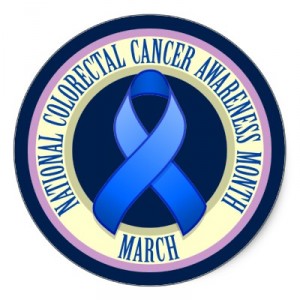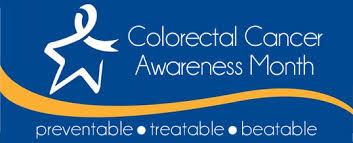 During Colorectal Cancer Awareness Month being celebrated this March, specialists for the disease are joining efforts to improve awareness about preventing the disease within the general public. Experts from Northwestern Memorial Hospital recently hosted a free educational event with the theme “Conversations About Colorectal Cancer” last Saturday in which they demystified common misconceptions associated with colorectal cancer.
During Colorectal Cancer Awareness Month being celebrated this March, specialists for the disease are joining efforts to improve awareness about preventing the disease within the general public. Experts from Northwestern Memorial Hospital recently hosted a free educational event with the theme “Conversations About Colorectal Cancer” last Saturday in which they demystified common misconceptions associated with colorectal cancer.
Despite the fact that colorectal cancer is the second leading type of killer cancer in the U.S. for both genders, according to data from the Centers for Disease Control and Prevention (CDC), specialists from the hospital believe that the number of deaths is related to a lack of public awareness and prevention efforts. Early screening may help reduce the severe cases of the disease and increase diagnosis in early or precancerous stages.
A team of physicians discussed the myths about the disease as well as the need for increased awareness. “Everyone should understand the facts about prevention and the importance of regular colonoscopies, for both men and women,” stated the chief of Gastrointestinal and Oncologic Surgery at Northwestern Memorial Hospital and surgical director of the Northwestern Medicine Digestive Health Center, Scott A. Strong, MD, in a press release.
“While surgical intervention and other treatment approaches continue to improve, appropriate screening can help prevent colorectal cancer from ever developing in some patients,” added Strong, explaining that the largest obstacles to early detection of the disease typically lie in the long-held myths perpetuated about colorectal cancer.
“I regularly hear that patients think screening wasn’t needed unless they already had symptoms consistent with colorectal cancer, but this is simply not the case,” continued the oncologist at Northwestern Medicine and member of the Robert H. Lurie Comprehensive Cancer Center of Northwestern University, Mary F. Mulcahy, MD.
“Colorectal cancer can be present for a long time before any symptoms are detected. Screening is for people with no symptoms of disease to detect precancerous disease. Symptoms such as blood in the stool, weight loss or any changes in the stool, are often signs of more advanced disease,” said Mulcahy.
The colorectal surgeon at Northwestern Medicine Lake Forest Hospital, John R. Andrews, MD, explained that another common myth is that colorectal cancer affects mainly men. However, women are equally at risk of developing it. “Colorectal cancer doesn’t discriminate among the sexes, and the CDC’s data clearly shows that nearly just as many women develop colorectal cancer as men. We need to correct the public perception that this is a man’s disease and encourage women to get screened regularly. The more women are proactively screened, the more lives will be saved.”
In addition, there is also a misconception that despite other factors, colorectal cancer may or may not occur. However, similarly to other cancer types such as lung cancer, there are lifestyle and habit alterations that can be made to reduce the danger of suffering from the disease, such as exercising, reducing the consumption of alcohol, eating more fiber, quitting smoking, eating less red meat, and taking more calcium, vitamin D and polyphenols.
Despite the alterations in diet and lifestyle choices recommended by the physicians, they also highlighted that the most effective way of preventing the development of colorectal cancer is to receive regular colonoscopy screening. Appropriate examination is recommended by the U.S. Preventive Services Task Force starting at 50 years old or earlier, depending on the family history and other risk factors.


